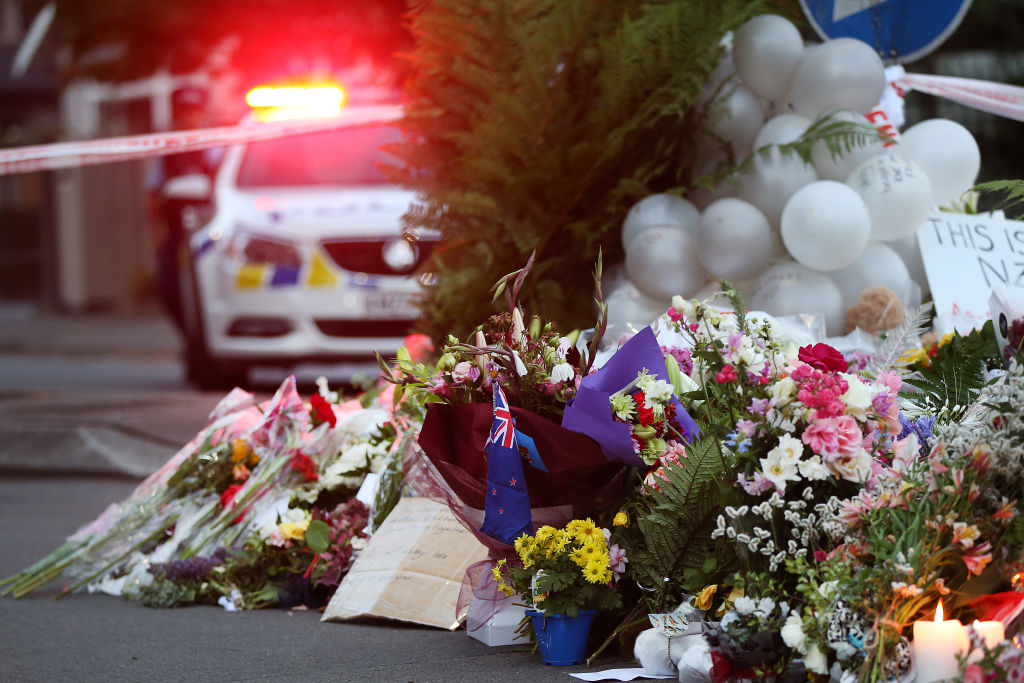
Recently I met with a former right-wing extremist in Australia who had become deradicalised.
This Australian had once believed, proudly, that given the mere fact they were born white made them superior to other races, other faiths, other people. In fact, this person believed in the eradication of other people of certain races and faiths.
However, through intervention, counselling, mental health support and, ultimately, rehabilitation, this person changed.
In fact, when I met with this person, I was sitting in a room with two of my colleagues—both Muslim. It was a stark illustration of what can happen when the right intervention happens at the right time. Unfortunately, the intervention and support this Australian received is the exception, not the rule.
Tomorrow marks the first anniversary of the Christchurch mosque shootings, a massacre of 51 Muslims quietly practising their faith. An Australian radicalised by right-wing extremist ideology is currently before the courts charged with these violent murders. On social media and across the globe, that particular Australian is now a hero among right-wing extremist groups.
While Australia should mark the Christchurch anniversary in solidarity with our New Zealand family and with the multi-faith and multicultural communities in Australia, we should also squarely face the fact that right-wing extremism is a growing and real terrorist threat in our nation and the world.
When it comes to national security, political leaders and security agencies should never ignore a threat and never exaggerate a threat. The new director-general of ASIO, Mike Burgess, did neither in his first annual threat assessment last month. Instead, he calmly and clearly told the Australian people the terrorist threat level in Australia has plateaued at an ‘unacceptably high’ level of ‘probable’, and the two threats that drive that threat level are Islamic fundamentalist extremism and right-wing extremism.
Much is being done to counter Islamic violent extremism and radicalisation. Local Australian Islamic families and communities have been crucial to that work. Many terrorist plots have been foiled thanks to the partnership between national security agencies and these communities.
But it’s less clear what particular work, if any, is being done to counter the threat of right-wing extremism in Australia, including understanding how groups are spreading their hate-filled messages and why those messages are resonating with some in the Australian community.
In a recent interview on the ABC’s Insiders, Home Affairs Minister Peter Dutton didn’t appear to have answers to these questions. He claimed right-wing extremism is being spread on the ‘dark web’. Right-wing extremism is, in fact, being spread openly in social gatherings and on social media, often through the use of specific symbols or ordinary words, like ‘siege’, that signal certain meanings to extremists. Today’s right-wing extremists aren’t using just the symbols of fascism from the past, but a new set of images and words for an online generation.
In the wake of the Christchurch massacre, Prime Minister Scott Morrison’s government did sign up to the ‘Christchurch Call’ to counter the drivers of terrorism and violent extremism. However, there is little apparent evidence that much has changed in the government’s counterterrorism approach as a result.
In Canada and the UK, right-wing extremist groups have been listed as terrorist organisations. Given the ASIO director-general’s warnings that small cells are meeting in suburbs in Australia to salute Nazi flags, inspect weapons, train in combat and share their hateful ideology by connecting with overseas groups online, it seems inconsistent that no right-wing groups have been listed here.
It may be that the criteria for listing terrorist organisations in Australia isn’t fit for purpose when it comes to right-wing extremism. For example, the definition of terrorism in Australia and the UK is similar but with a stark difference: the UK definition of terrorism explicitly extends to violent acts or threats made for the purpose of advancing a racial cause.
The UK also allows for listing when a group ‘glorifies’ extreme violence for political or ideological ends, including by sharing images or symbols on social media. The glorification criterion is one of the justifications the UK used to list right-wing extremist group National Action after the group posted tweets and images relating to the murderer of British Labour MP Jo Cox and the 2016 attack on a nightclub in Orlando, Florida. The UK government determined these images and posts could reasonably be taken to infer that such actions should be emulated and therefore were an unlawful glorification of terrorism.
Last month, four men from across the US who are alleged to be part of a neo-Nazi group were arrested for intimidating journalists. At the same time, FBI Director Christopher Wray told Congress that domestic racially and ethnically motivated violent extremists pose as great a threat to the United States as foreign terrorist organisations. One of the tools the FBI uses to track such threats is its hate crime statistics database. Wray notes that such crimes are not limited to the US and, with the aid of the internet, like-minded hate groups can reach across borders.
As we learned in Senate estimates last week, Australia doesn’t have any similar formal monitoring systems for right-wing extremist violence to help us understand the nature and scale of the problem here. Nor have we stood up specialist units to investigate such threats, as has happened in the US and Germany.
The Australian government and all federal parliamentarians must now take the terrorist threat of right-wing extremism seriously and respond appropriately. The Morrison government could begin this work by referring Australia’s terrorist listing criteria to the Parliamentary Joint Committee on Intelligence and Security for review. Our job as parliamentarians is not to play politics or engage in culture wars over such issues, and the PJCIS does neither. Keeping Australians safe is too important for that.

